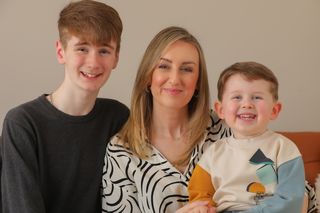Brave blossoms are not Japan's only pleasant surprise
Patrick O'Riordan
The awarding of the 2019 Rugby World Cup to Japan marked a significant moment for the sport globally. For the first time, the host country will not be one of the traditional powerhouses of the game.
Fans of rugby will recall that Japan were the surprise package of the 2015 tournament. The Brave Blossoms' put in the most spirited and entertaining performance the Rugby World Cup has ever seen in their shock victory over the mighty Springboks.
With the drive on for Irish businesses to seek out new international markets, Japan could also throw up another surprise result for some.
Since the turn of the century, Japan has been characterised in the West as an economy in the grip of not just one lost decade, but two.
What seems to have been overlooked is that it remains one of the most sophisticated and advanced markets on the planet running at, or close to, full employment for over 60 years unbroken.
For those that look a little closer, like the companies that have made Japan Ireland's seventh biggest trading partner, there are very bright prospects in the land of the rising sun for the capable and committed.
Its 127 million population may be the oldest on the planet, but the silver yen and culture of young singletons living with their parents has helped sustain one of the wealthiest consumer markets in the world.
Here's another perspective which may surprise. Despite the stagnation, GDP per capita has gone up because of the declining population. (Incidentally, demography experts says the Japan of today is the Europe of 2050. Robotics is not the only glimpse of the future here.)
At the turn of the century Japan experienced a slow-motion bursting of the country's asset bubble. In 2001, the government printed money in response. It didn't work.
Now, Prime Minister Shinzo Abe has implemented another series of interventions but this time, a more comprehensive "three-arrow" strategy.
Monetary easing and increased government spending to boost trade and investment are the first two, while the third arrow, structural reform, is due to reduce regulation and reform the labour market.
The latter may be a slow burner but along with the increased spending, greater market opportunity exists going forward in almost any sector.
We expect last year's export performance to be surpassed in 2016 and have identified sectors in Japan that match world class Irish capability including in software, financial technology, international services and medical devices.
Japan's corporate sector is in very good financial health and there are a number of sectoral policy shifts, for example on renewable energy, that make it a lucrative market for particular companies in this space.
As a global pioneer in consumer tech, unsurprisingly the Japanese are early adopters of innovative goods and services, especially anything that dovetails with popular culture, design and fashion.
Further opportunities exist in agri-tech, education and consumer goods - including premium-quality heritage products such as knitwear.
Irish companies have historically found Japan a difficult market to crack, largely because of the time and patience required to manage lengthy sales cycles and the associated cost of entry.
Decision makers here believe in measuring twice and cutting once and they expect a very high level of after-sales service too. But provide a world-class, competitive offering and there is no stronger reference site in Asia than having a satisfied customer in Japan.
The challenge for Irish companies is in really committing at the outset to a market that is demanding to enter, but also one that offers the rewards of scale, margin and sustainability.
As the Brave Blossoms showed us all, a commitment to excellence and a lot of determination can lead to unimagined rewards.
Patrick O'Riordan is Enterprise Ireland's Manager for Japan & Korea
Join the Irish Independent WhatsApp channel
Stay up to date with all the latest news















